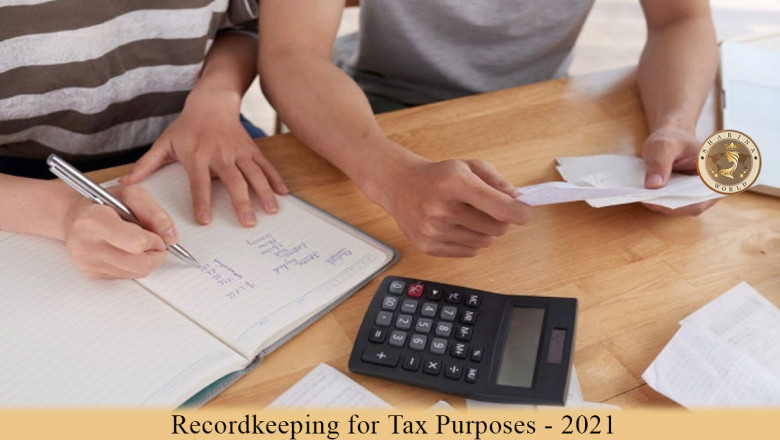views

Record Keeping For Tax Purposes - 2021 - CPA Clinics
Which records should you keep? You should keep information that you and the IRS need to determine your correct tax. Everyone should keep the following records.
Copies of tax returns. Keep copies of your tax returns as part of your tax records.
Proof of income and expenses. Listed below are examples of income and expense documents you should keep. The list is not all inclusive.
Some items require specific records, in addition to the basic records of income and expenses.
– Date and type of gambling activity.
– Gambling establishment name and address, and names of persons present with you.
– Amount you won or lost.
– Provider’s name, address, and taxpayer ID number for the Child and Dependent Care Credit.
– Physician’s certification for the Credit for the Elderly or the Disabled.
– School records for the education credits.
• Vehicle records. If you use your own car for business, medical transportation, or qualifying volunteer work, keep a mileage log that includes the date, destination, and purpose of each trip. You also need to know how many miles you drove for other purposes, such as commuting and personal use. Your vehicle records should include purchase or lease papers and loan records. You may receive a larger deduction if you keep records of gas purchases, maintenance costs, etc., in addition to mileage.
The records you keep provide the documentation to support the deductions and expenses claimed on your tax return. You must always keep documentation of the reason for the payment. Other documents, such as statements and receipts, will help establish that the item is allowable on your tax return.
The IRS says you must keep your records for as long as they may be needed for the administration of any provision of the Internal Revenue Code, which means you must keep records of items shown on your return until the statute of limitations for that return expires. The statute of limitations is the time during which you can amend your return, claim a credit, or be assessed additional tax by the IRS. The chart next column, lists some general guidelines.
*A return filed early is treated as being filed on the due date.
Keep records of acquisition date and cost basis for each business or investment asset until the period of limitations expires for the year in which you dispose of the asset. For example, suppose you sold a piece of business equipment in 2018 and you meet condition (1) above. You must then keep records of that asset until at least April 15, 2022 (three years after the due date for your 2018 tax return).
Paper records take up a lot of space, and they can fade or be damaged. Many people prefer to keep electronic records instead of paper records.
All requirements that apply to hard copy records apply to electronic records, including record retention periods.
If you scan or otherwise transfer your tax records to an electronic format, you must be able to store, preserve, retrieve, and reproduce the records in a legible, readable format. Remember to back up electronic records and store in a secure location.











